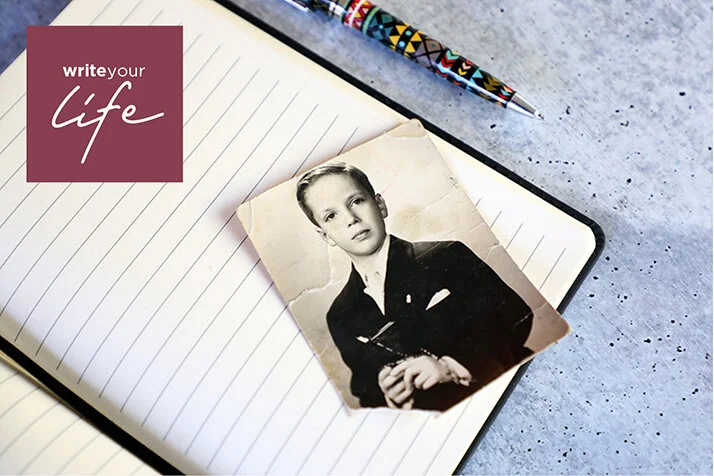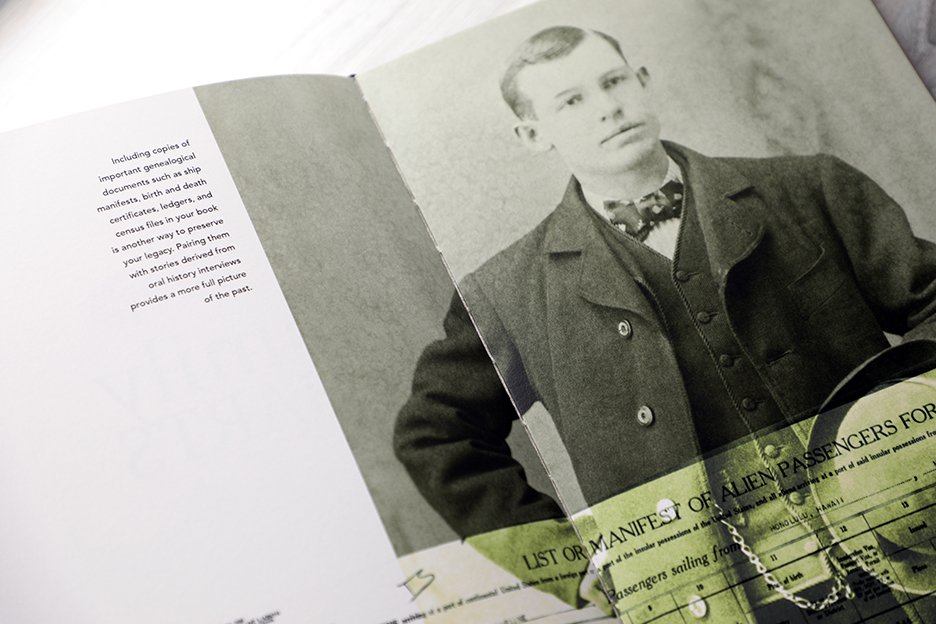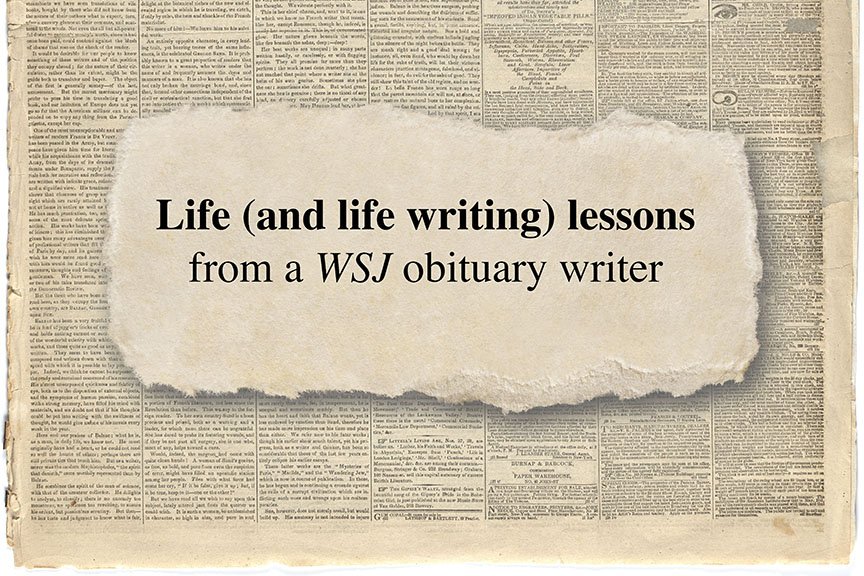Two things no one tells you about writing your own story

Are you thinking about writing your memoir? Or conducting family history interviews with a loved one? Maybe you're just beginning a regular journaling practice. However you plan to tell your stories, first: Congratulations! You are embarking on a most wonderful journey. Second: There are a couple of things you might not have yet considered.
Read on for these relevant—and hopefully encouraging—things you might want to know about telling your own story.
1 - Telling your own story can be hard.
Okay, so maybe this one doesn't seem so encouraging. But I mean for it to be.
Consider this: You sit down with your favorite Starbucks brew and your laptop eager to begin writing your memoir. And…nothing. That blank screen can seem intimidating, and even more so—you have lived a BIG life, so where the heck do you start?
Knowing that the task ahead will likely seem daunting—even to the point of paralysis—can empower you: Start small. Don't think about writing your whole life story, but rather about writing a single life story. Even better—don't even start with writing sentences! I am a big fan of brainstorming memories and ideas before beginning any real writing, so make a list. (I am willing to bet that you’ll begin scribbling lots and lots of thoughts about one of those memories--there always seems to be a kernel of the past that surprises and delights us with its specificity!).
Once you get going, you may encounter another difficulty: How do you share a painful memory? Should you even relate stories of struggle or failure? (Answer: YES! Those stories are revelatory, and they have contributed to who you are today.) The best advice I can give is to be gentle with yourself; remember that no one but you needs to read your first (or second, or even your final) draft; and that, more than anything else writing your stories is about finding meaning in the life you are living--and what better way to do that than to look back at what you have overcome?
“Your life story has a power all its own,” write the authors of Where to Go from Here. “Once you document your life and realize all that you have been through, survived, and accomplished, you can't help but have a fresh view of your worth.” Amen to that.
Make your storytelling easier.
Here are a few resources to help you get past the “hard” part of writing your life stories:
2 - Your family might not seem to care…but they will.
It can be a deflating feeling to offer to tell your kids about your childhood only to have them roll their eyes before returning their attention to the smart phone in their hand. But ask yourself this: Were you an avid listener when Gramps began regaling you with tales of walking uphill both ways to school? It’s a rare thing for the younger generation to pay much heed to the personal history of the older generation. But hear this: One day those stories will be precious to those very youngsters who could not care less now.
I talk about regrets all too often, because I hear about them all too often: from clients who WISH they had asked their parents for their stories, from friends who WISH they had written down the oft-told reminiscences of their parents before the details got fuzzy. So while you think your adult kids don’t care about your life experiences (they haven’t asked you, after all), they WILL care one day—and you can save them from having any regrets by preserving your stories now, knowing they will be welcomed--even cherished--one day.
Write in spite of the fact that you think your kids don’t care—because YOU know in your heart that one day, they will...a lot. (Trust me on this, okay?)
Get your family involved.
Find fun ways to engage your family with your stories:
Writer’s block can happen to the best of us. This simple idea—keeping a notebook of self-generated writing prompts—will keep your memoir ideas flowing.
Looking for a meaningful gift for your parents? An annual subscription to our Write Your Life memory and writing prompts may be just the thing—or, maybe not.
Learn about our Write Your Life course, providing memory prompts, writing guidance and a dose of inspiration to anyone who wants to preserve their stories now.
Here’s one time I gave in to my client’s preferences that still haunts me: Why we did not identify people in any of the photos in their family history book.
While your memoir is telling your stories in your words, a family tree chart outlining your relationships has a real place in that book—here’s why.
The first draft of your life story is likely to include some stuff you decide to cut later—but should none of your challenges make it into your final book?
Good writing prompts will rid you of blank-page anxiety—and you can easily write your own! Here, 5 steps to drafting a library of personalized memoir prompts.
While a journal called “Memories from Mom” or “Grandma’s Life Story” may be brimming with good intentions, the fact is that most of them remain mostly blank.
While all five of these books add value to any memoirist or life writer’s library, I’ve identified which is best for you based on your goals and experience.
A love letter (or book!) overflowing with memories makes a thoughtful anniversary gift. Here, 14 writing prompts to help you honor—and surprise—your partner.
Wondering if 52 weeks of memory prompts will help YOU write about your life at last? Here, answers to the most commonly asked questions about Write Your Life.
Every week you’ll get themed prompts to stir your memories, tips to write your stories with ease, and more! A unique gift for your loved one (or yourself)!
Sometimes all it takes to get unstuck with your personal writing is paying attention. Here are some easy (fun) ways to come up with journal writing prompts.
Ready to edit your family history or life story book? Follow these three tips from a personal historian to ensure everything is clear for your descendants.
This new book by Ruta Sepetys, You: The Story, is a great tool for those who want to use their own life experiences to inform their fiction writing.
Have you ever thought about what will happen to your diaries—who will read them, how you may one day use them? Join me as I consider this profound question.
Photos that have no captions will leave readers of your heirloom book guessing. Make sure to write captions that either tell a story or provide vital details.
Smells (such as of Mom’s perfume or Grandpa’s grease-stained clothes) and sounds—especially music—can trigger long-buried memories helpful for writing memoir.
Why leave your legacy in the hands of someone else? Try your hand at writing your own obituary with these tips—it just may be the start of your mini memoir.
Don’t let all those memory-keeping ideas swirling around your head overwhelm you. Instead, take some time to hone in on which stories to tell first—here's how.
Ethical wills—also called legacy letters—are great ways to pass on values and life lessons to your descendants. These two books will help you create your own.
Any life story book passed down to the next generation is a gift—but it's an even better gift if it sounds like the real you: Write with your authentic voice.
Research and fact-checking are integral parts of creating your memoir—but there's a good chance that it may be getting in the way of your actually writing it.
I might not have time for the full-fledged memoir I want to write, but I can make time every day for this easy and significant journal exercise—and so can you.
If writing your memoir means enough to you to put it on a bucket list, please read this—I’ll help you easily move it from future project to present-day endeavor.
Want a life writing prompt that gets your pen moving AND delivers a trove of future ideas for your memoir? Here it is—and bonus, it's a fun one!
Ignore those naysayers who warn that you must be passed middle age to begin writing your life stories: Start your memoir now, no matter how old you are.
Sometimes a life writing project can become overwhelming—so much so that we stop writing at all. Get back on track with your memoir with this three-step reset.
Three easy ways to make memoir writing more approachable—and more efficient, so you can finally fit it into your busy schedule.





























Is there ever really a ‘right’ time to start writing your memoir? There’s not, in my opinion, but here are two questions to ask yourself to help you decide.